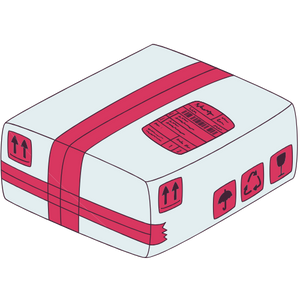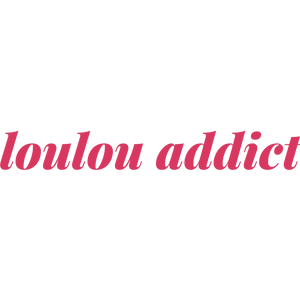Intimate hygiene during your period: good habits to adopt

Intimate hygiene during your period is an important topic! At this specific time in your cycle, the urge to “feel clean” can be particularly strong. That’s completely normal, especially if you have very heavy periods. Just be careful not to overdo it with overly intense washing.
What are the right habits to adopt? Scented soap or intimate wash gel? Washcloth or scented wipes? Shower or bath? Once or twice a day? What are the best practices for good feminine intimate hygiene during your period?
In this article:
First of all, during your period, do you need to change your intimate hygiene routine?
During your period, the national health insurance recommends washing the perineal area twice a day. To prevent the growth of harmful bacteria and for your own comfort, it’s important to be particularly thorough with intimate hygiene during your period. Be careful, though: some habits should be avoided and others prioritized.
What are the right habits to adopt for a gentle, balanced and non‑aggressive intimate wash during your period?
Do not use a washcloth; only use your hands, washed beforehand.
You should always wash from front to back, never the other way around!
It's really important to avoid body shower gels, scented soaps, bubble bath gels, and instead choose a suitable, gentle, fragrance-free soap with a clean composition and neutral pH. If you prefer, you can also opt for a gentle cleansing product to avoid potential irritation of the mucous membranes (such as an organic aloe vera cleansing gel).
Do not use cosmetic products such as perfumes, creams or intimate deodorants.
Do not use scented wipes.
Do not use scented toilet paper.
As you’ve probably gathered, all alcohol‑ and fragrance‑based products that we might be tempted to use to feel like we’re really “cleaning” the intimate area should be avoided. Fragrances are strong and disrupt the vagina’s delicate balance.
To remember: choose organic care products with a clear, minimally processed ingredient list and natural ingredients. The intimate area doesn’t need moisturising cream or perfume. It is self‑cleaning. Water is enough most of the time.
How to do it: step-by-step intimate washing guide
1. Gentle cleansing of the vulva with a dedicated product (an organic intimate wash gel or a mild organic cleansing care) or simply with water is recommended. Only the outside of the vulva should be washed. Vaginal douching is not recommended at all.
2. Then wash the cleft between the buttocks and the anus without going back to the vulva.
3. Rinse with water.
4. Gently pat dry with a clean, dry, personal towel without rubbing hard. And that’s it!
Thorough yet gentle washing – why is it important?
With this kind of intimate hygiene, you can avoid vaginal imbalance. The vaginal flora is a delicate and complex balance of good bacteria that are essential for our vagina. These good bacteria are also very helpful in preventing germs.
An overwashed vulva (washed multiple times a day), or one washed with unsuitable soaps or products, is a vulva that becomes weakened and irritated. It will be more likely to develop infections, imbalances and dryness. A weakened intimate area can allow bacteria to grow more easily.
Good intimate hygiene helps prevent vaginitis, vaginal yeast infections, cystitis and even urinary tract infections.
More tips for good intimate hygiene during your period
To feel good and experience your period as comfortably as possible, here are a few valuable tips.
Changing your period products regularly
can also occur outside of your cycle.
- A menstrual cup, like a tampon, should be worn for four hours, six hours maximum. You can of course change it earlier. Internal menstrual protection must be changed regularly to prevent the development of TSS, toxic shock syndrome.
- The disposable sanitary pad should be changed every 3 to 6 hours. Again, this depends on how heavy your menstrual flow is. A woman with a copper IUD may need to change much more frequently (every two hours).
- Period panties are the most practical option. With them, zero mental load! You can keep them on all day or all night depending on their absorbency and your menstrual flow. However, once you take them off, never forget to rinse them well to remove as much residue as possible.
Choose clean, non-toxic period products
Avoid scented sanitary products and opt instead for long-lasting, healthy intimate solutions with transparent ingredients. A French-made menstrual cup in medical-grade silicone, free from BPA and latex, or certified organic cotton period panties are excellent, proven alternatives!
Louloucup, a French brand, offers several ranges of durable, washable menstrual products for all women. With full transparency on ingredients, product origin and verified reviews, choose period protection that’s good for your health and respects your intimate area!
Avoid panty liners and opt for a period thong instead
The panty liner is very handy. At the beginning and end of your period, but also throughout the cycle when you have significant vaginal discharge or spotting, it helps keep your underwear stain-free! This very thin pad that sticks into your panties is really useful. But be careful! This disposable protection stops your intimate area from breathing properly. Using a panty liner puts you at higher risk of dryness and irritation.
The solution? If you’re a regular panty-liner user, we recommend a period thong! Louloucup offers a collection of period thongs and ultra-thin period panties for light flow and vaginal discharge. That way, you wear beautiful lingerie, let your intimate area breathe, and stay dry all day long.
Wear loose, cotton clothing every day
To avoid trapping moisture in your intimate area, to let the skin breathe and allow sweat to evaporate—and also for your comfort—skip super-skinny jeans during your period! It’s important to wear loose, roomy bottoms, preferably in a more natural fabric that lets your skin breathe.
The same goes for wet swimsuits. Avoid keeping on a wet bikini bottom while wearing your cup or tampon. A damp environment is never good for your intimate area!
 Remember to pin this article 😉
Remember to pin this article 😉































